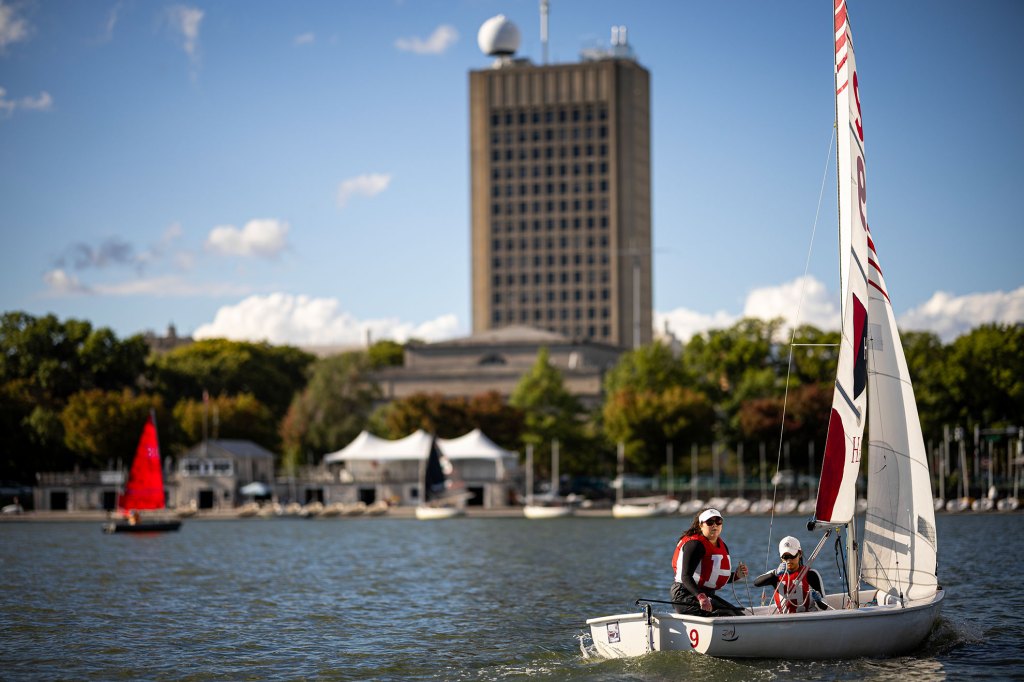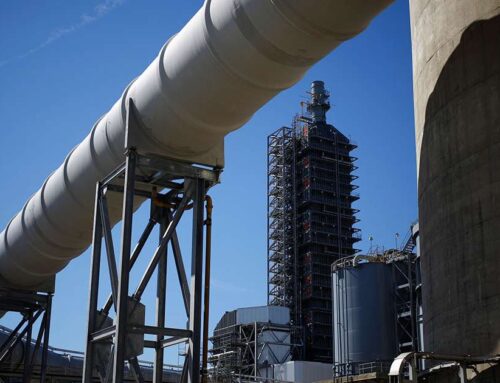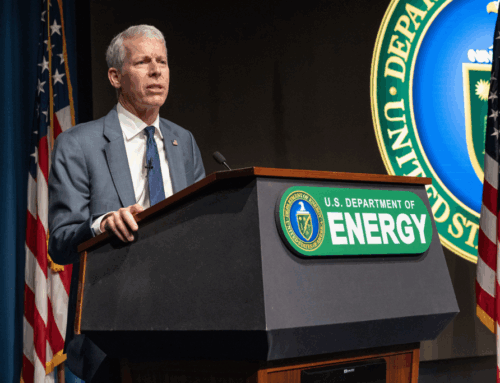On the sea or in the lab, Olivia Hogan-Lopez knows the value of perseverance
November 20, 2025
Olivia Hogan-Lopez ’26 learned some important lessons sailing on the ocean as a girl. One was to keep her eyes open.
“When you’re on the water for so long, you notice it changing from oil and gas spills in the harbor,” said Hogan-Lopez, of Gloucester, Massachusetts, and a member of the Harvard sailing team since 2022. “In more recent years there’s also been a notable increase in red tides and bacteria blooms which negatively impact our beaches and local aquatic systems.”
Over the past several months, Hogan-Lopez, an environmental science and engineering concentrator, has researched the impact of per- and polyfluoroalkyl substances on humans and the environment. A broad class of chemicals, PFAS are found in everyday products ranging from rain jackets to water bottles and nonstick cooking pans.
Known as “forever chemicals,” PFAS are extremely persistent in the environment, and some have long half-lives in humans, said Elsie Sunderland, the Fred Kavli Professor of Environmental Chemistry and professor of Earth and planetary sciences. “They have been statistically associated with increased incidences of a wide range of chronic diseases that indicate adverse impacts on immune health, cardiovascular health, inflammation, and risks of certain cancers. Our lab focuses on better characterizing sources of PFAS exposures and interventions that can help people reduce their exposures to these chemicals.”

According to a study conducted by the Journal of the National Cancer Institute, PFAS can be found in the blood streams of 98 percent of the U.S. population.
“We don’t really know how it accumulates and bioaccumulates in people,” said Hogan-Lopez. “That is a big part of my research. I’m really interested in figuring out how and what organs it stays in and how that might be linked later to different cancers.”
“We have been so happy to have Olivia in the lab for the last couple of years,” Sunderland said. “During her first year working with us, she mainly worked as a research assistant. This past year she has branched out and is now pursuing her own personal research toward a thesis project examining how PFAS partition and accumulate in different tissues.”
Inspired by environmental toxicology courses, such as “Introduction to Environmental Toxicology,” Hogan-Lopez switched her research focus from mercury to PFAS. Using fish organs and several different types of PFAS, she watches how the chemicals interact with uncontaminated fish organs, clocking the time it takes for them to contaminate the organs.
“I’m really pleased with how it’s turning out, and I have high hopes for the project, but I think, in science, you always have to be careful,” said Hogan-Lopez. “My experiments have been working and I’m really proud and excited to see where it goes. There have been bumps along the road, but it’s a great learning process.”
Another key lab lesson is one she’d already learned sailing: perseverance.
“Sailing is very similar in that when you’re having a tough time you keep pushing through,” she said. “The coaches are so great, and they tell it to you so many times and then it finally clicks.”
Now a senior, Hogan-Lopez hopes to make the most of the time she has left at Harvard.
“I’m really excited about my thesis and learning through this experience,” Hogan-Lopez said. “I’m really excited about sailing. I want to learn as much as I can before I go.”
Search
RECENT PRESS RELEASES
Related Post


